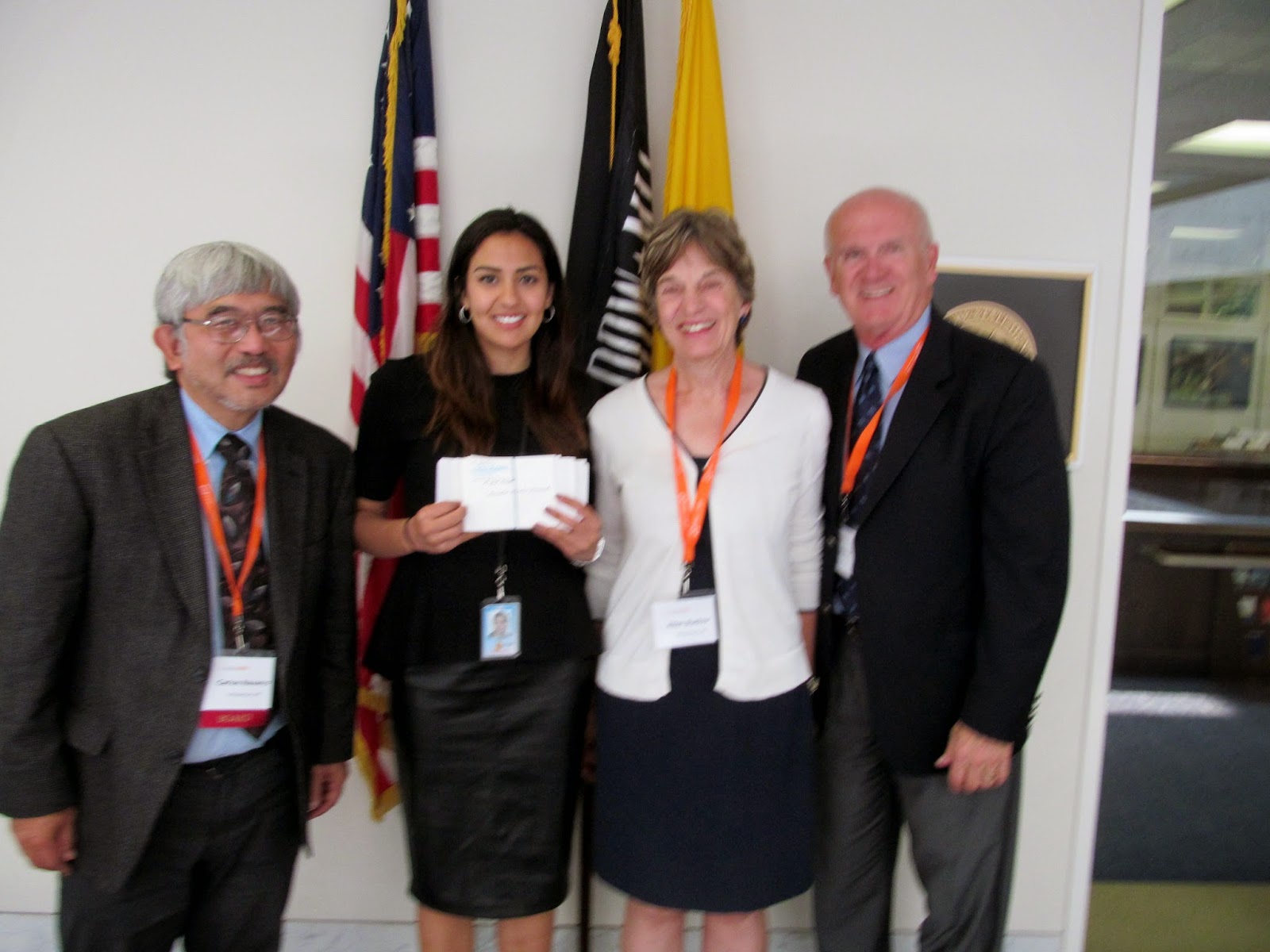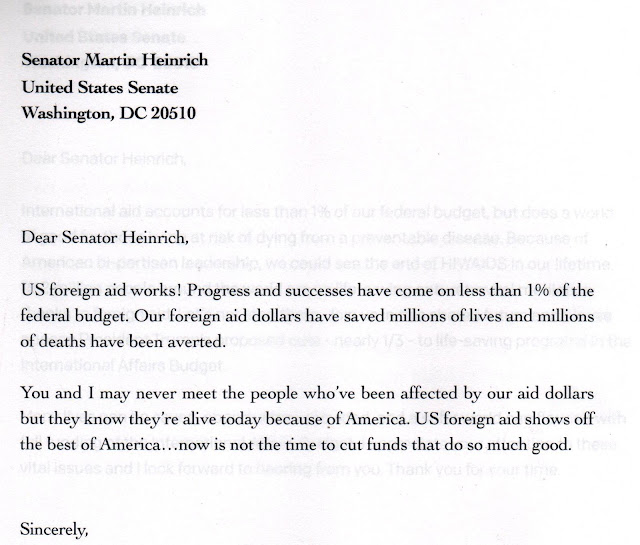Who is Senator Smith, and why is she hearing from members of
All Saints Lutheran Church in Albuquerque? Wait a minute. Aren't the last names off our senators from New Mexico Udall and Heinrich, and aren't they both men?
Let's forget the realities for a while and pretend that Senator Smith is representing us in Congress.
Below is the dialogue that
Lucretia Tippit,
Diana Lewis and their OL organizing committee created this year to explain
food-aid reform to the congregation. (Skits are a great vehicle to explain a topic of an OL to a congregation.
Click here to seen of what the folks at All Saints Lutheran did in 2012).
[Some of the pictures we used in this post are from Lobby Day in Washington on June 10, which Larry and Ellen Buelow and Carlos Navarro attended. The Buelows hand-delivered letters from Holy Rosary Catholic Community in Albuquerque].
Bread #1: Senator Smith, I’d like to give you this letter, written by a committee from my church, All Saints Lutheran in Albuquerque.
Senator: (Takes letter) What’s it about? I don’t have a lot of time to read just now. Important votes are coming up soon in the Senate. Just give me a quick run down on the content.
Bread #2: We’re asking you to strengthen our U.S.food-aid programs by considering some important reforms.
Senator: We’ve already appropriated millions of dollars recently for food assistance abroad. You know, Congress is worried about the budget and making needed reductions wherever we can.
Bread #1 We’re not asking you to increase the funding. We just want you to improve the efficiency of the way we deliver aid and insure that the food gets to the people who are really hungry and suffering through no fault of their own.
 |
| Rep Michelle.Lujan Grisham's aide holds letters from New Mexico |
Bread #2: Especially to women who are pregnant and children through their 2nd birthday—t hose 1000 days—when access to food is so important for mental and physical development.
Senator:
Well yes, I’m a mother myself. I know how important good nutrition is. But we can’t feed the whole world. You mentioned some inefficiencies…
Bread #1: A lot of our policies were put in place in the 1950s and it’s time to update and modernize them to meet the needs of a more globalized world. Some simple changes will make our government respond more flexibly and quickly to emergencies and feed more hungry people.
Senator:
I’m listening…
Bread #2: Well first, we should allow more food purchases in or near the country where it is needed. This way we can support local farmers’ efforts to improve their lives and the food will reach the people faster.
Senator:
That makes sense. Aren’t we already doing that?
Bread #1: No. Mostly we are shipping American grown food stuffs to these countries and often selling it on the open market. This practice depresses food prices in the market and again undermines local farmers who are often women.
Bread #2: When you take into consideration rising food prices and higher transportation costs, our aid is reaching only half as many hungry people as it did when the Food for Peace program began.
 |
| Some of the letters from All Saints went to Sen. Tom Udall |
Senator:
Wait a minute. I’m from an agricultural state. My constituents are having a difficult time right now. I don’t want to vote for anything that would negatively impact the farmers in my state.
Bread #1: These reforms will have very little impact to American farmers. U.S. food aid accounts for less than 1 percent of total U.S. agriculture exports and only 0.56 percent of net farm income. And even with the reforms we’re talking about, the majority of emergency food aid for humanitarian assistance like the earthquake in the Philippines will continue to be used for buying and transporting American commodities.
Bread #2: Following current laws which require that half of food-aid products be shipped on American ships is very inefficient. Sometimes it takes as long as 6 months and costs as much as 60 cents for each dollar spent on food aid.
Senator:
I can see my colleagues in the Senate will object to changes in the laws on shipping.
Bread #2: These reforms will impact the U.S. shipping industry minimally, as well. Food aid is a minimal part of the overall volume of cargo shipped on U.S. vessels. We’re talking a little over a million metric tons out of a total of 1 billion tons of cargo shipped.
Senator:
Well, so far, I’m following you. What other reforms do you have in mind?
Bread #1: Often the aid we provide in general distributions such as in refugee camps in Sudan and Syria provides energy and calories, but doesn’t provide essential vitamins and minerals. There are new types of specialized food-aid products that have been developed to address this issue.
 |
| Letters to Sen. Martin Heinrich |
Senator:
So you’re saying that without increasing the amount budgeted for food aid and by making some changes in current laws that allow the food to be purchased in or near the countries in question and to increase the nutritional quality of food aid available we can feed more hungry people.
Bread #1: Yes, you’ve summarized it nicely, Senator. Just by making these reforms we can benefit an additional 17 million people. Do we have your support ?
Senator:
Well, I’ll certainly consider it when the bills come up for a vote. I, too, am a Christian and believe we need to show compassion for those who are hungry and suffering in this world.
Bread #2: Thank you for your time and your support, Senator. (All shake hands.)


















































